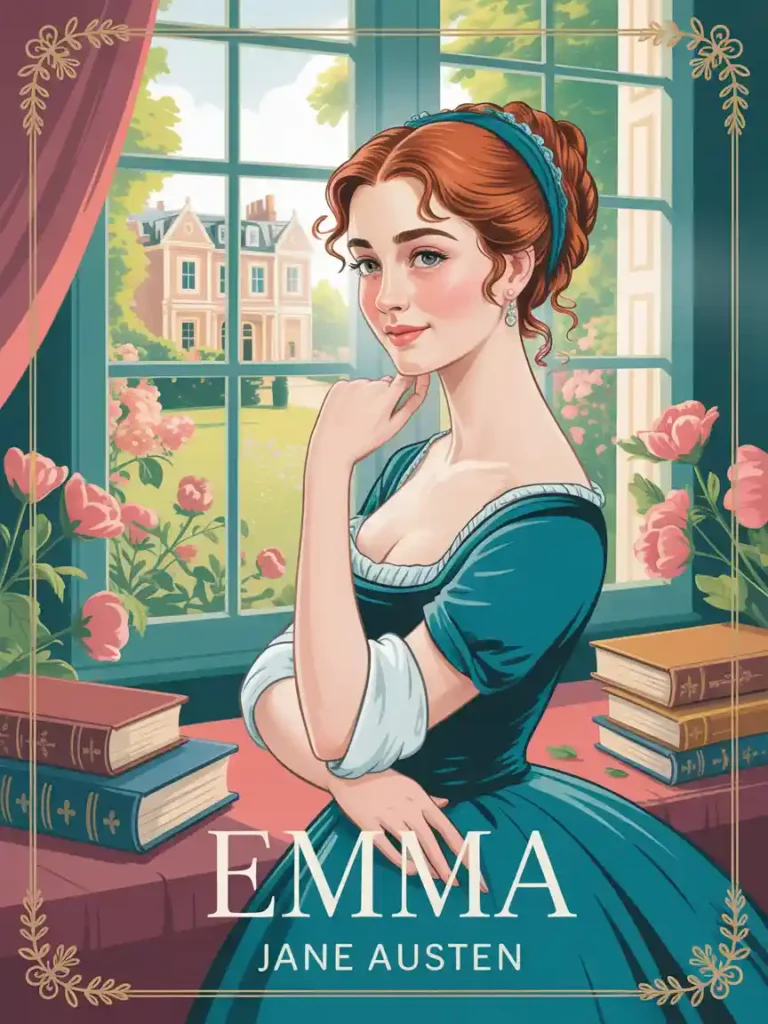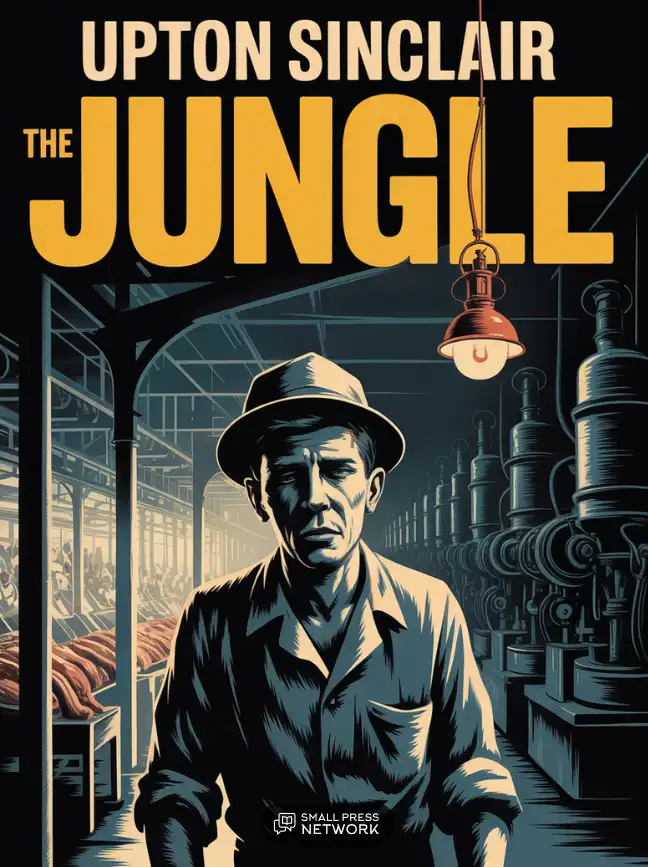Chapter XVII.
When the ladies returned to the drawing-room after dinner, Emma found it
hardly possible to prevent their making two distinct parties;—with so much
perseverance in judging and behaving ill did Mrs. Elton engross Jane
Fairfax and slight herself. She and Mrs. Weston were obliged to be almost
always either talking together or silent together. Mrs. Elton left them no
choice. If Jane repressed her for a little time, she soon began again; and
though much that passed between them was in a half-whisper, especially on
Mrs. Elton’s side, there was no avoiding a knowledge of their principal
subjects:—The post-office–catching cold-fetching letters—and friendship,
were long under discussion; and to them succeeded one which must be at
least equally unpleasant to Jane,—enquiries whether she had yet heard of
any situation likely to suit her, and professions of Mrs. Elton’s meditated
activity.
“Here is April come!” said she; “I get quite anxious about you. June will
soon be here.”
“But I have never fixed on June or any other month—merely looked
forward to the summer in general.”
“But have you really heard of nothing?”
“I have not even made any enquiry; I do not wish to make any yet. ”
“Oh! my dear, we cannot begin too early; you are not aware of the
difficulty of procuring exactly the desirable thing.”
“I not aware!” said Jane, shaking her head; “dear Mrs. Elton, who can
have thought of it as I have done?”
“But you have not seen so much of the world as I have. You do not know
how many candidates there always are for the first situations. I saw a vast
deal of that in the neighbourhood round Maple Grove. A cousin of Mr.
Suckling, Mrs. Bragge, had such an infinity of applications; every body was
anxious to be in her family, for she moves in the first circle. Wax-candles in
the school-room! You may imagine how desirable! Of all houses in the
kingdom, Mrs. Bragge’s is the one I would most wish to see you in.”
“Colonel and Mrs. Campbell are to be in town again by midsummer,” said
Jane. “I must spend some time with them; I am sure they will want it;—
afterwards I may probably be glad to dispose of myself. But I would not
wish you to take the trouble of making any enquiries at present.”
“Trouble! ay, I know your scruples. You are afraid of giving me trouble;
but I assure you, my dear Jane, the Campbells can hardly be more interested
about you than I am. I shall write to Mrs. Partridge in a day or two, and
shall give her a strict charge to be on the look-out for any thing eligible.”
“Thank you, but I would rather you did not mention the subject to her; till
the time draws nearer, I do not wish to be giving any body trouble.”
“But, my dear child, the time is drawing near; here is April, and June, or
say even July, is very near, with such business to accomplish before us.
Your inexperience really amuses me! A situation such as you deserve, and
your friends would require for you, is no every-day occurrence, is not
obtained at a moment’s notice; indeed, indeed, we must begin enquiring
directly.”
“Excuse me, ma’am, but this is by no means my intention; I make no
enquiry myself, and should be sorry to have any made by my friends. When
I am quite determined as to the time, I am not at all afraid of being long
unemployed. There are places in town, offices, where enquiry would soon
produce something—offices for the sale, not quite of human flesh, but of
human intellect.”
“Oh! my dear, human flesh! You quite shock me; if you mean a fling at
the slave-trade, I assure you Mr. Suckling was always rather a friend to the
abolition.”
“I did not mean, I was not thinking of the slave-trade,” replied Jane;
“governess-trade, I assure you, was all that I had in view; widely different
certainly as to the guilt of those who carry it on; but as to the greater misery
of the victims, I do not know where it lies. But I only mean to say that there
are advertising offices, and that by applying to them I should have no doubt
of very soon meeting with something that would do.”
“Something that would do!” repeated Mrs. Elton. “Ay, that may suit your
humble ideas of yourself;—I know what a modest creature you are; but it
will not satisfy your friends to have you taking up with any thing that may
offer, any inferior common-place situation, in a family not moving in a
certain circle, or able to command the elegancies of life.”
“You are very obliging; but as to all that I am very indifferent; it would be
no object to me to be with the rich; my mortifications, I think, would only
be the greater; I should suffer more from comparison. A gentleman’s family
is all that I should condition for.”
“I know you, I know you; you would take up with any thing; but I shall be
a little more nice, and I am sure the good Campbells will be quite on my
side; with your superior talents, you have a right to move in the first circle.
Your musical knowledge alone would entitle you to name your own terms,
have as many rooms as you like, and mix in the family as much as you
chose;—that is—I do not know—if you knew the harp, you might do all
that, I am very sure; but you sing as well as play;—yes, I really believe you
might, even without the harp, stipulate for what you chose;—and you must
and shall be delightfully, honourably and comfortably settled before the
Campbells or I have any rest.”
“You may well class the delight, the honour, and the comfort of such a
situation together,” said Jane, “they are pretty sure to be equal; however, I
am very serious in not wishing any thing to be attempted at present for me. I
am exceedingly obliged to you, Mrs. Elton, I am obliged to any body who
feels for me, but I am quite serious in wishing nothing to be done till the
summer. For two or three months longer I shall remain where I am, and as I
am.”
“And I am quite serious too, I assure you,” replied Mrs. Elton gaily, “in
resolving to be always on the watch, and employing my friends to watch
also, that nothing really unexceptionable may pass us.
In this style she ran on; never thoroughly stopped by any thing till Mr.
Woodhouse came into the room; her vanity had then a change of object, and
Emma heard her saying in the same half-whisper to Jane,—
“Here comes this dear old beau of mine, I protest!—Only think of his
gallantry in coming away before the other men!—what a dear creature he
is!—I assure you I like him excessively. I admire all that quaint, old-
fashioned politeness; it is much more to my taste than modern ease; modern
ease often disgusts me. But this good old Mr. Woodhouse, I wish you had
heard his gallant speeches to me at dinner. Oh! I assure you I began to think
my cara sposa would be absolutely jealous. I fancy I am rather a favourite;
he took notice of my gown. How do you like it?—Selina’s choice—
handsome, I think, but I do not know whether it is not over-trimmed ; I have
the greatest dislike to the idea of being over-trimmed—quite a horror of
finery. I must put on a few ornaments now, because it is expected of me. A
bride, you know, must appear like a bride, but my natural taste is all for
simplicity; a simple style of dress is so infinitely preferable to finery. But I
am quite in the minority, I believe; few people seem to value simplicity of
dress,—show and finery are every thing. I have some notion of putting such
a trimming as this to my white and silver poplin. Do you think it will look
well?”
The whole party were but just re-assembled in the drawing-room when
Mr. Weston made his appearance among them. He had returned to a late
dinner, and walked to Hartfield as soon as it was over. He had been too
much expected by the best judges, for surprise—but there was great joy. Mr.
Woodhouse was almost as glad to see him now, as he would have been
sorry to see him before. John Knightley only was in mute astonishment.
That a man who might have spent his evening quietly at home after a day of
business in London, should set off again, and walk half-a-mile to another
man’s house, for the sake of being in mixed company till bed-time, of
finishing his day in the efforts of civility and the noise of numbers, was a
circumstance to strike him deeply. A man who had been in motion since
eight o’clock in the morning, and might now have been still,—who had
been long talking, and might have been silent,—who had been in more than
one crowd, and might have been alone!—Such a man, to quit the
tranquillity and independence of his own fire-side, and on the evening of a
cold sleety April day rush out again into the world!—Could he, by a touch
of his finger, have instantly taken back his wife, there would have been a
motive; but his coming would probably prolong rather than break up the
party. John Knightley looked at him with amazement, then shrugged his
shoulders, and said, “I could not have believed it even of him.”
Mr. Weston meanwhile, perfectly unsuspicious of the indignation he was
exciting, happy and cheerful as usual, and with all the right of being
principal talker, which a day spent any where from home confers, was
making himself agreeable among the rest; and having satisfied the enquiries
of his wife as to his dinner, convincing her that none of all her careful
directions to the servants had been forgotten, and spread abroad what public
news he had heard, was proceeding to a family communication, which,
though principally addressed to Mrs. Weston, he had not the smallest doubt
of being highly interesting to every body in the room. He gave her a letter—
it was from Frank, and to herself; he had met with it in his way, and had
taken the liberty of opening it.
“Read it, read it,” said he,—“it will give you pleasure; only a few lines—
will not take you long; read it to Emma.”
The two ladies looked over it together; and he sat smiling and talking to
them the whole time, in a voice a little subdued, but very audible to every
body.
“Well, he is coming, you see; good news, I think. Well, what do you say
to it? I always told you he would be here again soon, did not I? Anne, my
dear, did not I always tell you so, and you would not believe me? In town
next week, you see—at the latest, I dare say; for she is as impatient as the
black gentlemanx when any thing is to be done; most likely they will be
there to-morrow or Saturday. As to her illness, all nothing, of course. But it
is an excellent thing to have Frank among us again, so near as town. They
will stay a good while when they do come, and he will be half his time with
us. This is precisely what I wanted. Well, pretty good news, is not it? Have
you finished it? Has Emma read it all? Put it up, put it up; we will have a
good talk about it some other time, but it will not do now. I shall only just
mention the circumstance to the others in a common way.
Mrs. Weston was most comfortably pleased on the occasion. Her looks
and words had nothing to restrain them. She was happy, she knew she was
happy, and knew she ought to be happy. Her congratulations were warm and
open; but Emma could not speak so fluently. She was a little occupied in
weighing her own feelings, and trying to understand the degree of her
agitation, which she rather thought was considerable.
Mr. Weston, however, too eager to be very observant, too communicative
to want others to talk, was very well satisfied with what she did say, and
soon moved away to make the rest of his friends happy by a partial
communication of what the whole room must have overheard already.
It was well that he took every body’s joy for granted, or he might not have
thought either Mr. Woodhouse or Mr. Knightley particularly delighted. They
were the first entitled, after Mrs. Weston and Emma, to be made happy.
From them he would have proceeded to Miss Fairfax; but she was so deep
in conversation with John Knightley, that it would have been too positive an
interruption; and, finding himself close to Mrs. Elton, and her attention
disengaged, he necessarily began on the subject with her.





